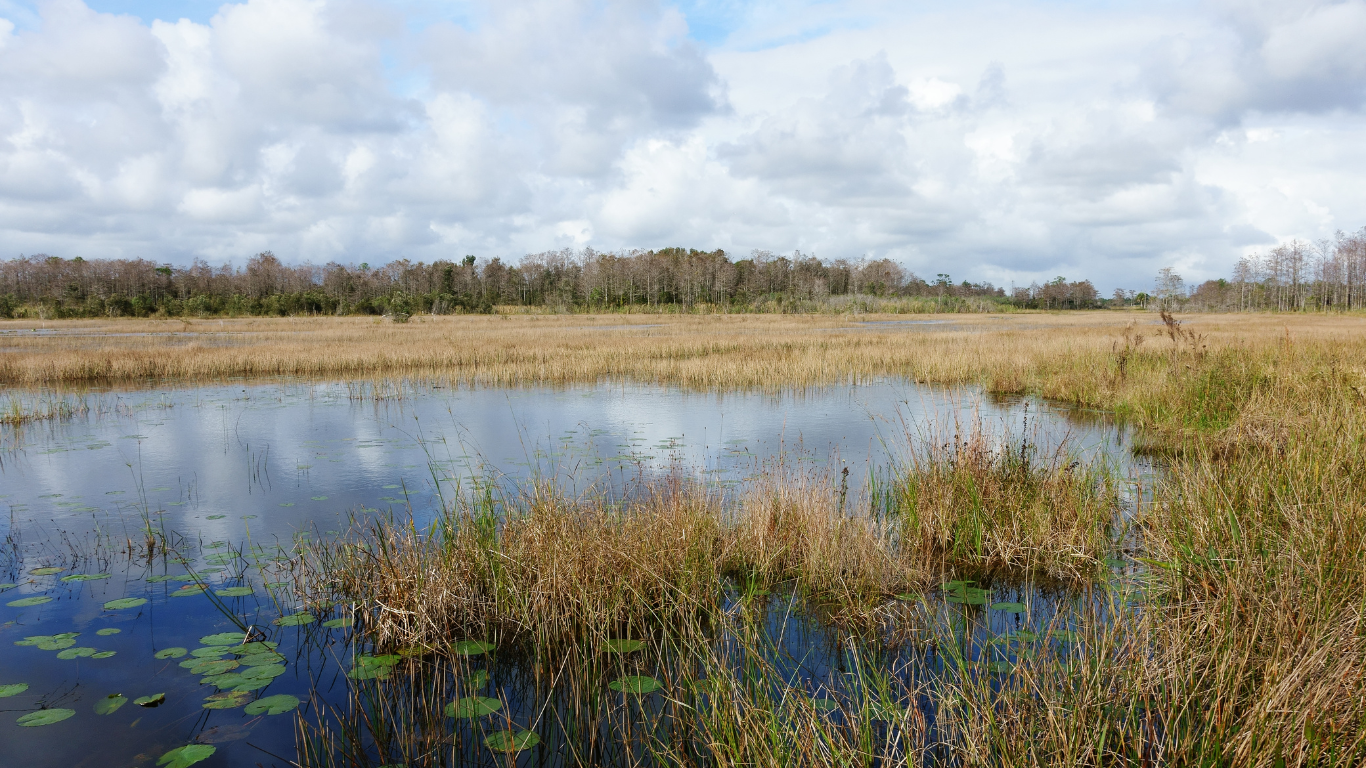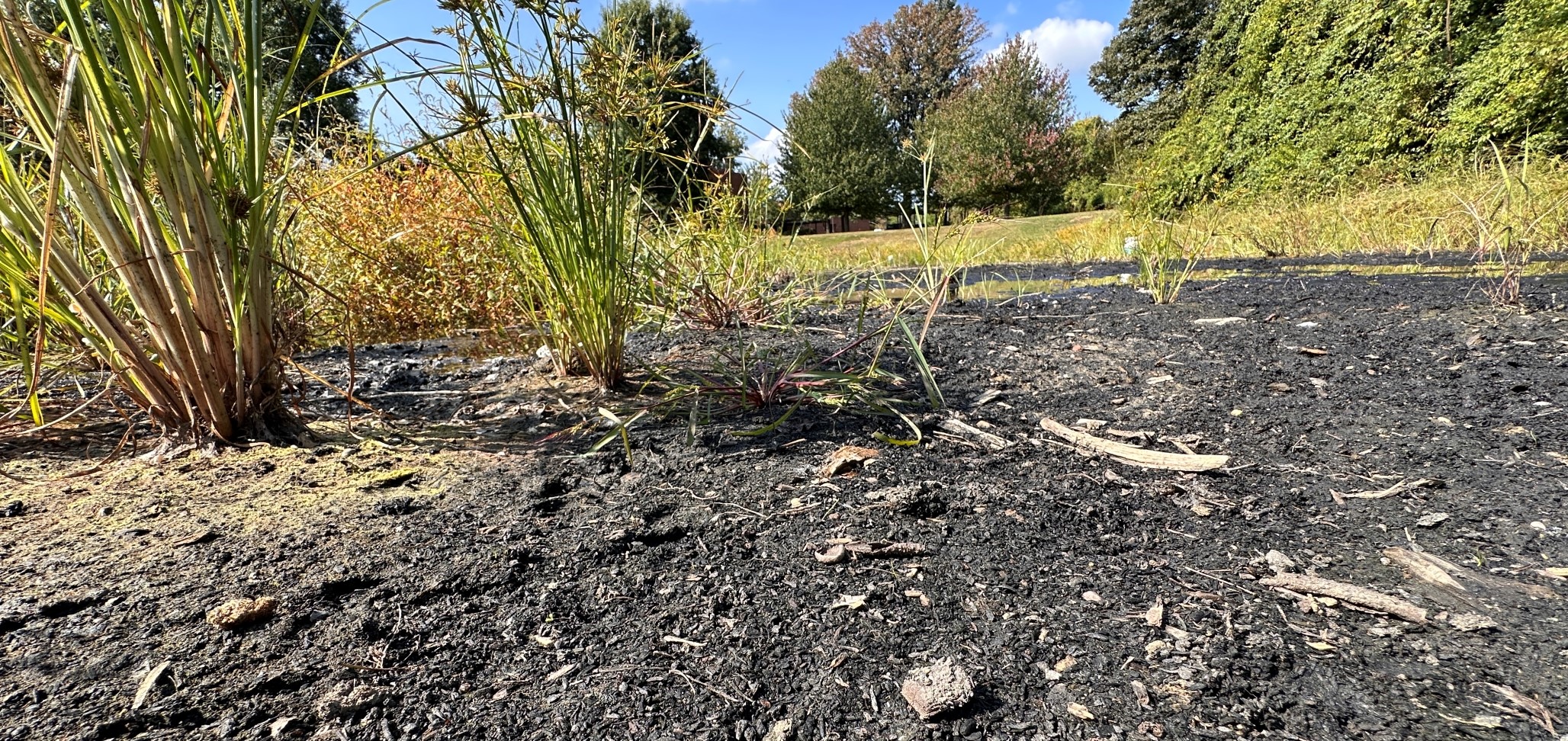Empowering Sustainable Urban Landscapes with Biochar
Empowering Sustainable Urban Landscapes with Biochar
CWP’s work to demonstrate and advance innovative stormwater management strategies has recently focused on the use of biochar-a carbon-rich product made from organic matter through a process that involves heating the material in a low-oxygen environment-to enhance the effectiveness of stormwater management facilities and reduce cost. Research shows that adding biochar to the filter media of a stormwater management practice can increase soil water holding capacity and water infiltration, improve soil fertility in nutrient-poor soils, filter metals, and prevent the movement of bacteria into waterways.
With a grant from the National Fish and Wildlife Foundation’s Innovative Nutrient and Sediment Reduction Program, CWP led a two-year project to accelerate the rate and scale of biochar amendment applications in urban areas within the Chesapeake Bay watershed to support runoff reduction and improved water quality. This work involved:
-
Providing evidence and support for biochar amendment specifications and crediting by regulatory agencies
-
Delivering comprehensive education about the many benefits of biochar, increasing understanding and adoption of this sustainable resource
-
Creating a Community of Practice that provides agencies, researchers, and organizations access to resources and expertise to help them develop and operate biochar projects
-
Creating draft construction details, storage and handling specifications, biochar testing requirements, biochar enhanced bioretention specifications, soil amendment with biochar specifications, and tree planting with biochar specifications
-
Providing technical assistance to implementation partners for sourcing certified, quality biochar along with specifications for the use, installation, and maintenance of biochar-amended projects
CWP worked with core partners Infinite Solutions, University of Delaware, and the United States Biochar Initiative on these activities to scale up the use of biochar in stormwater practices across the Chesapeake Bay watershed. The team worked with the following implementation partners to install biochar in stormwater practices: Hirschman Water & Environment, Howard Ecoworks, District of Columbia Department of the Environment; Arlington County, VA; Carroll County, MD; Delaware Department of Transportation; Maryland Transportation Authority; Anne Arundel County, MD; Baltimore City Forestry, City of Waynesboro, VA; Borough of Hanover, PA; Cityscape Engineering, and City of Lancaster, PA. The project website includes educational information about biochar, a biochar projects map, and a calendar of biochar related events.
To learn more about this project, contact Carol Wong at ckw@cwp.org.

